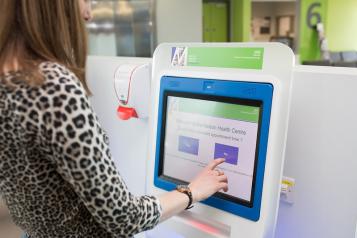Our report highlights impact of digital inclusion on access to healthcare

We gathered insights with the aim of informing future service improvements, thus ensuring a more inclusive and accessible healthcare environment for all.
Our report following this survey reveals the level of access to technological devices and use of online services to access healthcare services. Key points raised include:
- Respondents expressed a preference for services that combine digital, telephone, and face-to-face interactions.
- Respondents called for training in using digital services, particularly for older people and those less confident in using online platforms.
- Respondents requested quicker responses and simplified processes, such as reference numbers for follow-ups and straightforward systems for booking appointments.
Give people a choice over the way they want the service provided. It could be a mixed model of digital, telephone, and face-to-face, but ultimately it should be down to the individual to choose how they’d like to receive their care.
Our recommendations, based on the finding of the digital inclusion survey, include taking steps to increase public awareness of digital services, making digital platforms more user-friendly and flexible, and improving accessibility for people with disabilities.
The survey also highlighted the need for a digital inclusion to be widened across communities and address the diverse needs and preferences of our local population
What difference did this make?
- The North Care Partnership will consider those who cannot use or don’t have access to digital services in their work moving forward.
- We shared our results at the Cambridgeshire County Councils Digital Strategy launch in May.
- A PPG in Huntingdonshire has organised NHS App training day in collaboration with their Integrated Neighbourhood.
Read the report
You can download our report and its appendices free of charge below. Please contact us if you would like a copy of this report in a different format.

